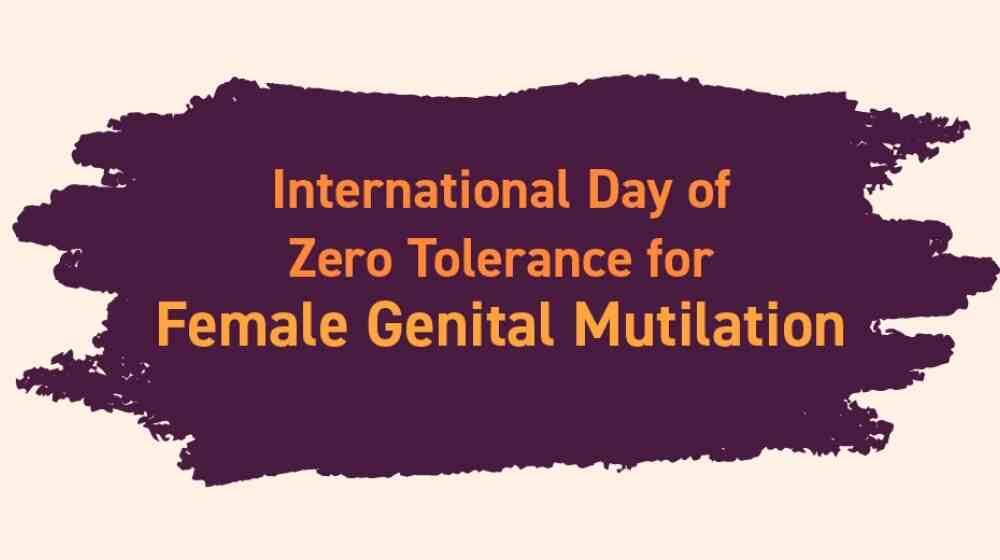The Arab Region/Middle East and North Africa home to 50 million cases of FGM, one quarter of the total global cases
From Luay Shabaneh, UNFPA Arab States Regional Director and Bertrand Bainvel, Acting UNICEF Regional Director for the Middle East & North Africa
AMMAN/CAIRO, 7 February 2022- “Today marks the International Day of Zero Tolerance to Female Genital Mutilation (FGM). The theme of this year is ‘Accelerating Investment to end FGM’. UNFPA and UNICEF embrace the vision of the 2030 Agenda for Sustainable Development to end harmful practices, particularly, FGM. The two agencies have been co-leading the largest UN Joint Programme on the elimination of FGM since 2008.
“Through this joint initiative, in 2020, more than 2.2 million people from 16 countries made public declarations on FGM abandonment. Additionally, more than 570,000 girls and women received services in health care, social welfare, and access to justice, and 90,302 girls across 3,622 communities gained skills and knowledge to advocate for their rights and become agents of change. With partners, there have been accelerated efforts to end FGM in the region through the UNFPA - UNICEF Joint Programme on the Elimination of FGM.
“Yet, there is a need to scale up current programmes and address the challenges that lay ahead. FGM has severe and long term physical and mental implications on the lives of girls and women. The region has 50 million cases of FGM, accounting for a quarter of the global FGM cases.
“This year marks the launch of Phase IV of the UNFPA-UNICEF Joint Programme, guided by a new vision: ‘A world free of FGM, where girls and women have voice, choice and agency’. Positioning girls and women at the driving seat to eliminate this harmful practice, can only be achieved through accelerated collective and multisectoral action at the community, national, regional and global levels. In this phase, The Joint Programme will (i) expand opportunities for women’s and girls’ agency; (ii) promote enabling family and community environments; (iii) build and expand a global youth movement grounded in adolescent girls’ leadership; (iv) strengthen governance to end FGM; (v) strengthen the capacity of rights holders and duty bearers; and (vi) bridge the gap between evidence generation and uptake of research to eliminate FGM.
“Achieving zero FGM cases requires a true collaboration and coordination of stakeholders at the community, national, regional, and global levels.”
###
Notes to Editors
The UNFPA–UNICEF Joint Programme on the Elimination of Female Genital Mutilation works to tackle female genital mutilation through interventions in 17 countries where the practice is prevalent. The programme creates opportunities for girls and women to realize their rights in health, education, income and equality to help end the power imbalances that underpin this harmful practice.
For further information, please contact:
UNICEF Middle East and North Africa: Juliette S. TOUMA, Regional Chief of Advocacy & Communications,+962-79-867-4628, jtouma@unicef.org
UNFPA Arab States Regional Office: Samir Aldarabi, UNFPA Regional Media Adviser for the United Nations Population Fund for the Arab States Region, +201068484879, aldarabi@unfpa.org
About UNICEF
UNICEF works in some of the world’s toughest places, to reach the world’s most disadvantaged children. Across more than 190 countries and territories, we work for every child, everywhere, to build a better world for everyone.
For more information about UNICEF and its work for children visit www.unicef.org
Follow UNICEF on Twitter, Facebook, Instagram and YouTube
About UNFPA
UNFPA is the United Nations sexual and reproductive health agency. UNFPA's mission is to deliver a world where every pregnancy is wanted, every childbirth is safe and every young person's potential is fulfilled. UNFPA calls for the realization of reproductive rights for all and supports access to a wide range of sexual and reproductive health services.
For more information about UNFPA and its work visit: www.unfpa.org
Follow UNFPA on Twitter, Facebook, Instagram and YouTube
Available in French


